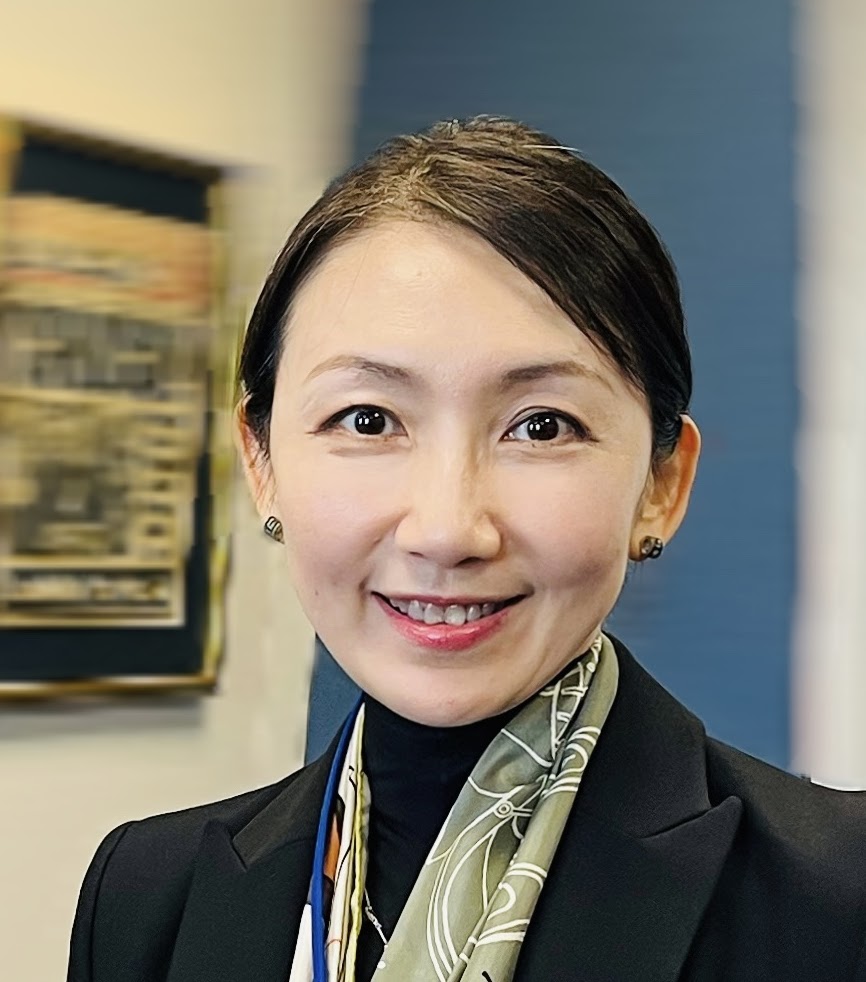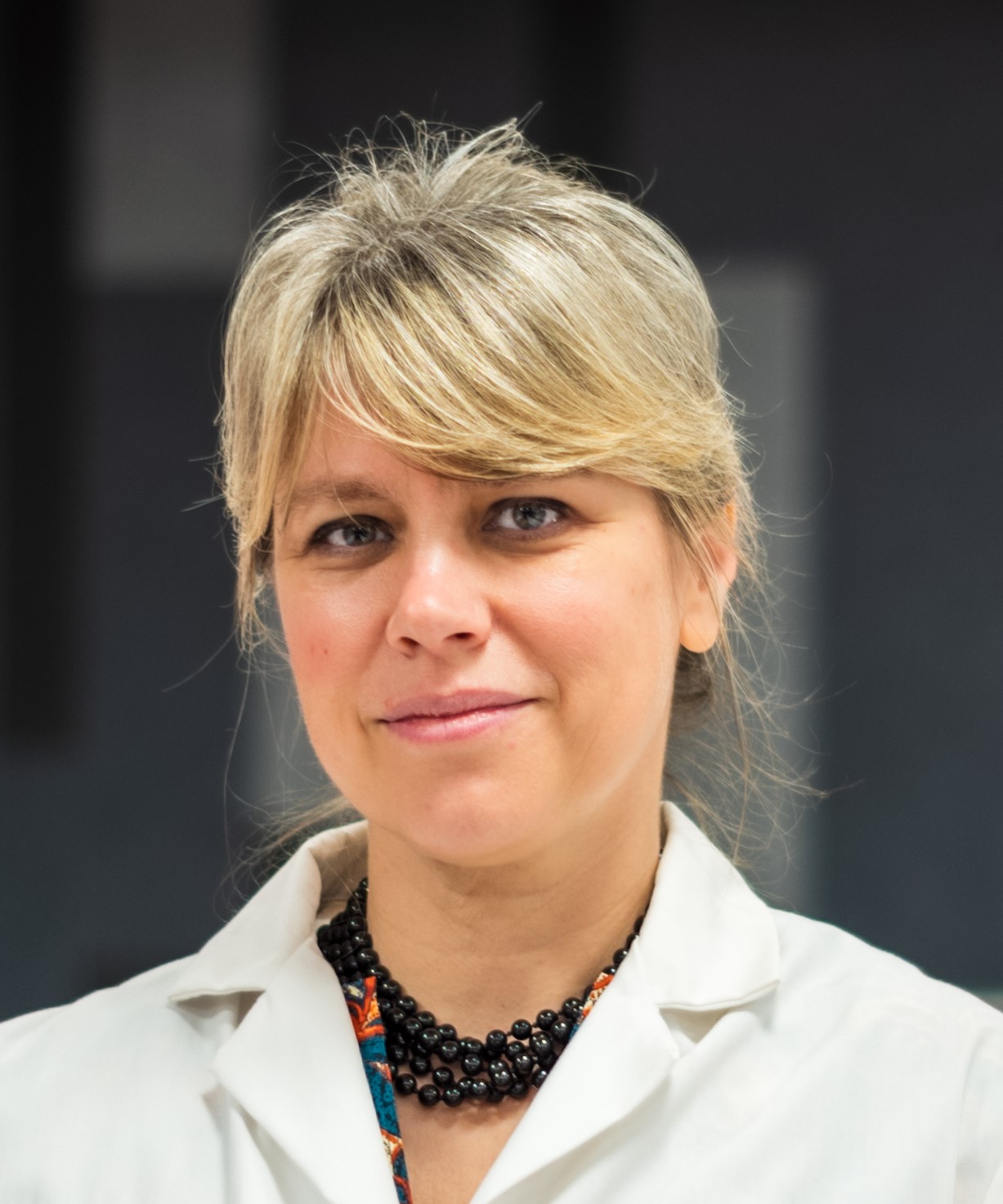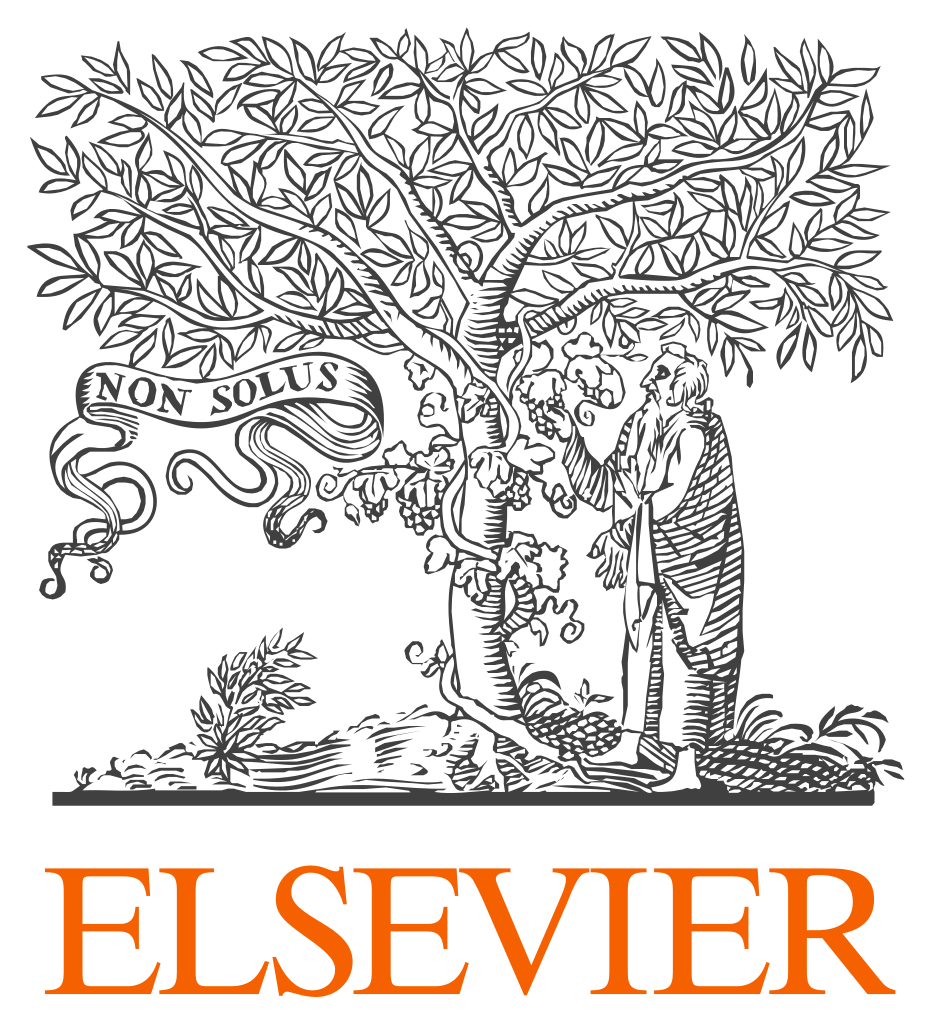Jump to Women in Computing Panel ⤵
SCH Panel
Date-Time: June 25, 2:00pm - 3:15pm ET
Place: Auditorium, YU Museum, NY
Panelists:
- Shiwen Mao, Auburn University (Moderator)
- Xiaofan (Fred) Jiang, Columbia University
- Yulia R. Gel, Virginia Tech
- Wenjing Lou, Virginia Tech
- Casimir Kulikowski, Rutgers University
Details:

Shiwen Mao
SCH Panel Moderator
Auburn University
Short Biography:
Shiwen Mao is a professor and the Earle C. Williams Eminent Scholar, and Director of the Wireless Engineering Research and Education Center (WEREC) at Auburn University, Auburn, AL, USA. His research interest includes wireless networks, multimedia communications, and smart grid. He is a Distinguished Lecturer of IEEE Communications Society and the IEEE Council of RFID, and is the Editor-in-Chief of IEEE Transactions on Cognitive Communications and Networking. He received the IEEE ComSoc MMTC Outstanding Researcher Award in 2023, IEEE ComSoc TC-CSR Distinguished Technical Achievement Award in 2019, and NSF CAREER Award in 2010. He is a co-recipient of the 2022 Best Journal Paper Award of IEEE ComSoc eHealth Technical Committee (TC), the 2021 Best Paper Award of Elsevier/KeAi Digital Communications and Networks Journal, the 2021 IEEE Internet of Things Journal Best Paper Award, the 2021 IEEE Communications Society Outstanding Paper Award, the IEEE Vehicular Technology Society 2020 Jack Neubauer Memorial Award, the 2018 ComSoc MMTC Best Journal Paper Award and the 2017 Best Conference Paper Award, the 2004 IEEE Communications Society Leonard G. Abraham Prize in the Field of Communications Systems, and several ComSoc technical committee and conference best paper/demo awards. He is a Fellow of the IEEE.

Xiaofan (Fred) Jiang
Columbia University
Short Biography:
Xiaofan (Fred) Jiang is an associate professor in the Electrical Engineering department at Columbia University and Chair of the Smart Cities Center at the Data Science Institute. Jiang received his PhD in Computer Science from UC Berkeley in 2010. His research lies at the intersection of systems and data, with a focus on intelligent embedded systems and their applications in mobile and wearable computing, intelligent built environments, the Internet of Things, cyber-physical human systems, and connected health. His research has been published in top-tier venues and has received numerous awards, including Best Paper Awards at MobiSys '24, BuildSys '24, ITEC '21, IPSN '05 and Best Demo Awards at IPSN '23, SenSys '21, IPSN '20, IoTDI '18 and SenSys '11. He has served on technical and organizing committees of leading conferences in the field, including TPC Chair of BuildSys '14, TPC Chair of e-Energy '23, General Chair of SenSys '19, General Chair of BuildSys '21, General Chair of IPSN '23, and TPC Chair of SenSys '25. Currently, he is the Vice Chair of ACM SIGEnergy, founding area editor of ACM Energy Informatics Review, and associate editor for ACM HEALTH, ACM TOSN, and ACM TIOT journals. His research has been featured in many popular media outlets, including The Economist, New York Post, Mashable, Gizmodo, The Telegraph, and Fast Company. He is the recipient of an NSF Graduate Fellowship, a Vodafone-US Foundation Fellowship, and an NSF CAREER Award.

Yulia R. Gel
Virginia Tech
Short Biography:
Yulia R. Gel is a Professor in the Department of Statistics at Virginia Tech. Her research interests focus on mathematical and statistical foundations of data science, topological and geometric methods in artificial intelligence and machine learning, risk analytics, and knowledge graph learning, with applications to assessing resilience of complex systems, biomedical digital twins, and early warning mechanisms. She holds a Ph.D in Mathematics, followed by a postdoctoral position in Statistics at the University of Washington. Prior to joining Virginia Tech, she was a tenured faculty member at the University of Waterloo, Canada and University of Texas at Dallas. She also held visiting positions at Johns Hopkins University, University of California, Berkeley, and the Isaac Newton Institute for Mathematical Sciences, Cambridge University, UK. In her recent stint (2021-2025) as Program Director in National Science Foundation (NSF) at the Division of Mathematical Sciences (DMS) and Directorate for Technology, Innovation and Partnerships (TIP), she has served as a cognizant officer for various inter-agency interdisciplinary research programs at the interface of mathematical sciences and artificial intelligence, including the NSF-FDA-NIH Foundations for Digital Twins as Catalyzers of Biomedical Technological Innovation (FDT-BioTech) and the NSF-NIH Smart Health and Biomedical Research in the Era of Artificial Intelligence and Advanced Data Science (SCH). She has authored more than 150 publications in top statistical, data mining and machine learning venues such as NeurIPS, ICML, ICLR, AAAI, KDD, IJCAI, and PNAS and served as senior area chair for ICML and NeurIPS. Her research has been continuously supported by ONR, NASA, and NSF. She is a Fellow of the American Statistical Association (ASA), recipient of the NSF2023 Director's Award, NSF STARS Awards, and has multiple Best Paper Awards from the ASA Section on Statistics for Defense and National Security.

Wenjing Lou
Virginia Tech
Short Biography:
Wenjing Lou is the W. C. English Endowed Professor of Computer Science at Virginia Tech and a Fellow of the ACM and the IEEE. Her research interests cover many topics in the cybersecurity field, with her current research interest focusing on trustworthy machine learning, security and privacy problems in networked information systems, blockchain, and Internet of Things (IoT) systems. Prof. Lou received the Virginia Tech Alumni Award for Research Excellence in 2018, the highest university-level faculty research award. She received the IEEE INFOCOM Test-of-Time Paper Award in 2020 and the INFOCOM Achievement Award in 2025. She was the TPC chair for IEEE INFOCOM 2019 and ACM WiSec 2020. She was the Steering Committee Chair for IEEE CNS conference from 2013 to 2020. She is currently the vice chair of IEEE INFOCOM steering committee and a member of IEEE CNS steering committee. She served as a Program Director at the U.S. National Science Foundation (NSF) from 2014 to 2017 in the Division of Computer and Network Systems (CNS) within the Directorate for Computer and Information Science and Engineering (CISE), where her primary responsibilities included NeTS, SaTC, EARS, and several international collaboration programs.

Casimir A. Kulikowski
Rutgers University
Short Biography:
Casimir (Kaz) Kulikowski is Board of Governors Professor of Computer Science
at Rutgers-The State University of New Jersey; Fellow of the AAAI, AAAS,
ACMI, AIMBE, GBHIA (Hon), IAHSI, IEEE, and IMIA (Hon), and member of
the National Academy of Medicine (USA). His research is primarily on pattern
recognition and AI in biomedicine and the history of medical informatics.
Kulikowski currently chairs the American College of Medical Informatics (ACMI)
Committee of Historians and co-chairs the International Medical Informatics
Association (IMIA) History Working Group. In 1973-75 with S. Weiss, he
developed the first causal-associational network (CASNET) model of disease,
generalized to a highly efficient compiled rule-based framework EXPERT (used by
a large number of major national and international companies to develop expert
systems), the first medical expert system on a chip incorporated into a commercial
clinical instrument (Helena Labs' Clinical Densitometer), and knowledge
representations for the collaborative AI/RHEUM Decision Support System, and
the first hand-held expert system for decision support in infectious eye diseases
deployed in Africa and sponsored by WHO. Kulikowski was organizer of the first
AI in Medicine Workshop in 1975, and summarized the early contributions of his
group in the 1984 AAAS book Artificial Intelligence in Medicine, in the 1987
Edited Volume: History of Medical Informatics in the US and in numerous other
books, encyclopedias and scientific articles. He coauthored two books with Weiss
(A Practical Guide to Designing Expert Systems. 1984, and Computer Systems that
Learn: Techniques from Statistics, Neural Nets, Machine Learning, and Expert
Systems, 1991), as well as co-editing the IMIA Yearbook of Medical Informatics
from 2001 to 2012. Besides numerous clinical screening and decision support
systems, Kulikowski has worked with researchers in public health and
epidemiology on interactive online policy models for vaccination programs for
developing nations, sponsored by the International Vaccine Consortium (IVAC) in
Geneva. A long-term collaboration with Jilin University in China investigated
expert systems for modeling in medical imaging, and video interpretation problems
as well as underlying broader issues of concept representation with the special
challenges arising in multilingual biomedicine and healthcare. Kulikowski also
worked in bioinformatics for genomics and proteomics, including a pioneering
constraint satisfaction system for predicting 3D protein structures from NMR data,
as well as several novel informatics methods for translational medicine.
Kulikowski led the international editorial team that compiled the 50 th Anniversary
History eBook International Medical Informatics and the Transformation of
Healthcare 2021, and now co-edits a second volume comprising the history of the
national and regional societies of medical informatics and research trends in the
field worldwide.
Jump to SCH Panel ⤴
Women in Computing Panel
Date-Time: June 26, 11:40am - 12:55pm ET
Place: Auditorium, YU Museum, NY
Panelists:
- Ping Ji (Moderator) City University of New York (CUNY) Graduate Center, USA
- Antonina Mitrofanova, Rutgers University
- Ye Sun, University of Virginia
- Lu Wang, University of Houston
- Juan Shan, Pace University
Details:

Ping Ji
Women in Computing Panel Moderator
City University of New
York (CUNY) Graduate Center, USA
Short Biography:
Dr. Ping Ji is a Full Professor in Computer Science of the City University of New York' John Jay College of Criminal Justice and the Graduate Center. She received her bachelor's degree in Computer Science and Technology from Tsinghua University, in Beijing, China, and earned her PhD in Computer Science, under the advisement of Distinguished Professors Jim Kurose and Don Towsley, from the University of Massachusetts Amherst. Currently, Dr. Ji also serves as the Executive Officer of the Computer Science PhD Program and the Director of the Data Science Master's Program of CUNY Graduate Center. Throughout her 20+ years career at CUNY, Dr. Ji has pioneered many initiatives on both academic and administration sides. Dr. Ji is a founding faculty and a key contributor of John Jay College's Digital Forensics and Cybersecurity Master's program, and the founding director of CUNY Graduate Center's Master's program in Data Science. Dr. Ji's research interests include Network Measurements and Data Analysis, Security Monitoring Strategies for Computer & Wireless Networks, Network Security, Mobile Networks, and Internet of Things (IoT). Her work have been published in well recognized professional journals and conference proceedings including IEEE/ACM Transaction on Networking (ToN), ACM SigComm, ACM SigKDD, Performance Evaluation, etc.. Dr. Ji is the recipient of over $3M research fundings and awards throughout her career . Her research are currently funded by the National Science Foundation and Google.

Antonina Mitrofanova
Rutgers University
Short Biography:
Dr. Antonina Mitrofanova is a tenured Associate Professor in the Department of Biomedical and Health Informatics and serves as Associate Dean for Research at the Rutgers School of Health Professions. She co-leads the Rutgers Health Roadmap Initiative, which established the Center for Biomedical Informatics and Health AI (BMIHAI). She is also a member of the Rutgers Cancer Institute of New Jersey, the Rutgers Institute for Quantitative Biomedicine, and the Rutgers School of Graduate Studies. Dr. Mitrofanova earned her Ph.D. in Computer Science at New York University under the mentorship of Bud Mishra. She completed postdoctoral training in Computational Systems Biology at Columbia University Cancer Center, working with Andrea Califano as an NSF Computing Innovation Fellow and with Michael Shen, supported by a Prostate Cancer Foundation Young Investigator Award. Her foundational interest in medicine began during her four years at Kyiv Medical University in Ukraine. At Rutgers, Dr. Mitrofanova leads a research laboratory focused on developing and clinically translating computational algorithms to elucidate genomic, transcriptomic, and epigenomic mechanisms driving disease progression and therapeutic response, especially in cancer. Her team aims to build multi-level biomarker panels to predict treatment resistance and guide personalized therapeutic strategies based on patients’ molecular and clinical profiles.

Ye Sun
University of Virginia
Short Biography:
Dr. Ye (Sarah) Sun joined University of Virginia as an associate professor in 2021. Prior to her position at UVA, Sun was an associate professor in the Department of Mechanical Engineering at Michigan Technological University. She received her PhD degree in Electrical Engineering from Case Western Reserve University in 2014. Her research is an interdisciplinary route that integrates engineering innovation with human health and human behaviors. Her primary research focus is on wearable sensors, devices and robotics. She is a recipient of the NSF CAREER Award.

Lu Wang
University of Houston
Short Biography:
Dr. Lu Wang is currently a joint Assistant Professor in Biomedical Engineering (Cullen College of Engineering) and Health Systems and Population Health Science (Tilman J. Fertitta Family College of Medicine) at the University of Houston. Prior to UH, she was an Assistant Professor in Computer Science at the Texas State University. She obtained her Industrial Engineering Ph.D. at the University of Toronto and before that she gained her first Ph.D. with a Computer Science major at the Wayne State University. She received her undergraduate degree in Statistics from the University of Minnesota, Twin Cities. Her primary research interests are developing and applying Machine Learning, Data Mining and Statistical methods (e.g., Multi-task Learning, Survival Analysis, Clustering, Risk Factor Analysis and Causal Discovery) on various data including gene expression, electronic health/medical records, and DNA sequencing reads for both cognitive disorders (e.g., delirium, Alzheimer's disease, dementia, major depressive disorder) and chronic diseases (e.g., cancer, obesity, hypertension). Inspired by the human factors approach, she also designs and develops Human-Centered Artificial Intelligence tools for users to integrate, visualize, analyze, and interpret health data in order to improve the interoperability and accessibility of AI-assisted healthcare decision support. She has been published in several journals, both nationally and internationally, as well as having presented in numerous conferences including IEEE International Conference on Data Mining (IEEE ICDM), Data Mining and Knowledge Discovery (DMKD Journal), ACM Transactions on Computer-Human Interaction (TOCHI), Journal of Medical Internet Research (JMIR) Medical Informatics, American Medical Informatics Association (AMIA) Informatics Summit, IEEE EMBS International Conference on Biomedical and Health Informatics (IEEE EMBS BHI), IEEE International Conference on Bioinformatics and Biomedicine (IEEE BIBM), Alzheimer's Association International Conference (AAIC), Neurocomputing journal, etc. She serves as the associate editor of Smart Health journal and her research has been funded by NSF and CIHR and more.

Juan Shan
Pace University
Short Biography:
Dr. Juan Shan is an Associate Professor in the Department of Computer Science at Pace University, where she has been a faculty member since 2013. Prior to joining Pace, she served as an Assistant Professor at Benedictine College from 2011 to 2013. She holds a Ph.D. in Computer Science from Utah State University. Dr. Shan's research interests include machine learning, medical image processing, and computer-aided diagnosis (CAD) systems. Her primary focus is developing robust and efficient CAD algorithms to help doctors analyzing medical images, discovering distinguishing features, and classifying data utilizing machine learning methods. Her on-going research projects include CAD systems for breast cancer, diabetic retinopathy, and knee osteoarthritis. Her research has been supported by funding from the National Science Foundation and the Department of Defense. She is also the recipient of the 2024 Kenan Award for Teaching Excellence at Pace University and several other honors recognizing both her research and teaching excellence.
Jump to SCH Panel ⤴
Jump to Women in Computing Panel ⤴





